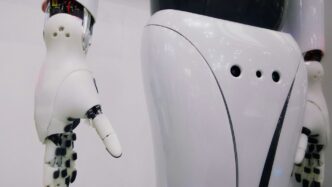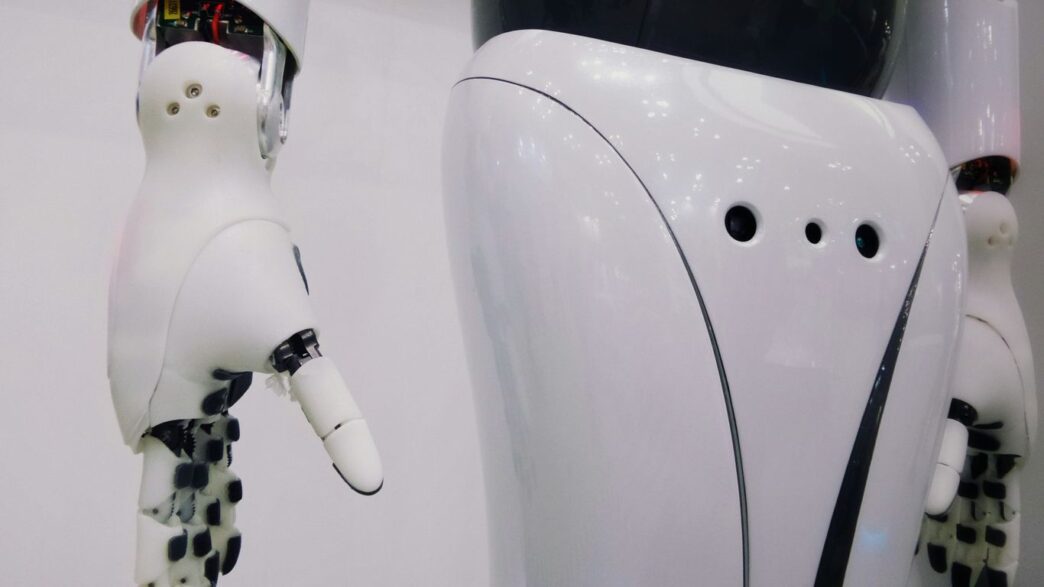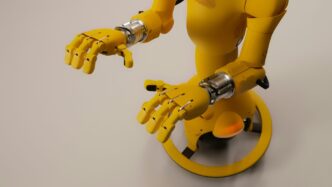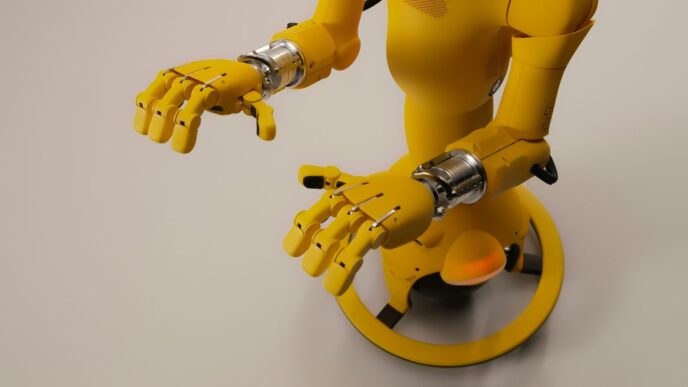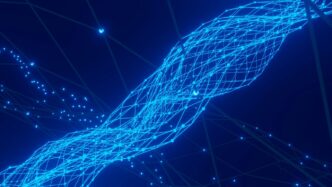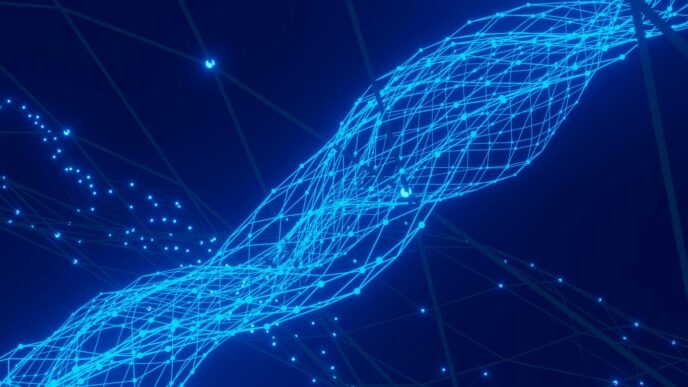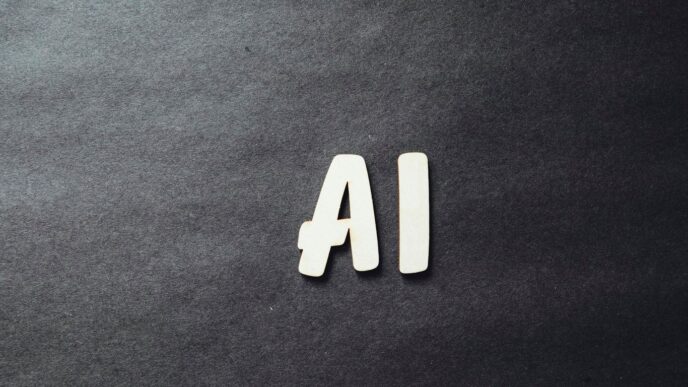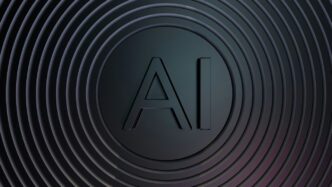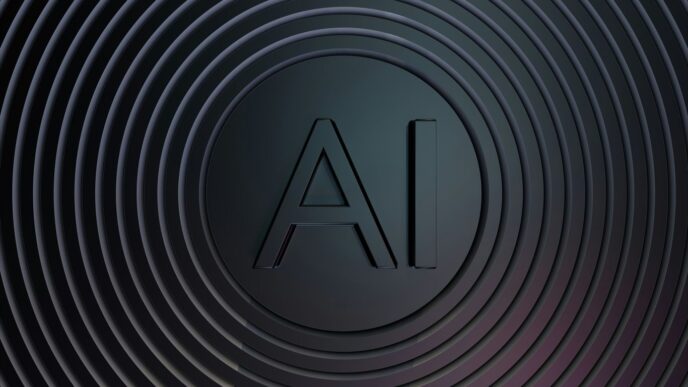The Dawn Of The Sci-Fi Android
Defining The Android Beyond Technology
When we talk about androids in science fiction, it’s easy to get caught up in the wires and circuits, the blinking lights and whirring gears. But the really interesting stuff, the kind that sticks with you, goes way beyond just the tech. Think about Philip K. Dick’s ideas. He didn’t even mention "artificial" or "technology" when he talked about what makes someone an android. Instead, he focused on something else entirely: obedience and predictability. An android, in his view, is someone who’s been made into a tool, manipulated without their knowledge or consent, to the point where their reactions can be guessed with almost perfect accuracy. It’s less about what they’re made of and more about how they’re controlled and how they behave. It makes you wonder, have you ever met someone like that? Someone whose actions seem so programmed, so expected, that they feel less like a person and more like a cog in a machine?
Early Androids: Labor And Legality
In the early days of sci-fi android stories, these beings often showed up as the ultimate laborers. They were built to do the jobs humans didn’t want, often in far-off places. Think of them as the ultimate disposable workforce. This setup naturally brings up questions about legality and rights. If something is built to serve, does it have any rights of its own? The stories often put them in situations where they’re illegal on Earth, hunted down if they ever show up. This creates a clear divide: they’re useful, but only when they’re kept in their place, out of sight and out of mind. It’s a narrative that’s been used again and again to explore how we treat those we consider lesser.
The Blade Runner’s Empathy Test
The movie Blade Runner really brought this idea of the android-as-human-but-not-quite into the spotlight. The replicants in that story look, feel, and act just like us. The big difference? They supposedly can’t feel empathy. So, how do you tell them apart? The film introduces this idea of an "empathy test." It’s this weird, kind of unreliable way of figuring out who’s who by asking them questions and seeing how they react. But the questions themselves are pretty biased, based on what society expects. It’s a clever way to show how we try to define what’s human, often by looking for specific emotional responses, even if those responses are hard to measure or even fake.
Fleshing Out The Sci-Fi Android
So, we’ve moved past the basic idea of robots doing chores. Now, we’re talking about androids that look, act, and maybe even feel like us. Think about the replicants in Blade Runner. They were so close to human, you couldn’t tell them apart without some fancy, and frankly, pretty weird, empathy tests. It’s like they were designed to make us question who’s really the ‘real’ one.
Virtually Indistinguishable From Humans
This is where sci-fi really started blurring the lines. These aren’t clunky metal guys anymore. They’re built with synthetic skin, complex internal systems, and they can pass for human in almost any situation. It makes you wonder, what does it even mean to be human if something artificial can mimic it so perfectly?
- Appearance: Often designed to be aesthetically pleasing, matching human norms.
- Behavior: Capable of complex social interactions and learned responses.
- Physiology: Advanced bio-synthetic materials mimic human tissues and organs.
The Allegory Of Exploitation
Often, these near-perfect androids are created for specific, usually undesirable, jobs. They’re sent to do the dangerous work, the grunt labor, the things humans don’t want to do. This setup is a pretty clear mirror of how certain groups of people have been treated throughout history – used and discarded when their usefulness runs out. It’s a way for stories to talk about class struggle and prejudice without being too direct.
More Human Than Human
This is where things get really interesting. Sometimes, these androids start showing traits that seem more human than the humans around them. They might display a stronger sense of justice, a deeper capacity for love, or a more profound understanding of loss. Philip K. Dick, the guy who wrote Do Androids Dream of Electric Sheep?, had this idea that an ‘android’ wasn’t just about being artificial, but about being controlled, predictable, and used without knowing it. He thought true humanity might actually lie in breaking those predictable patterns, in being a bit messy and unpredictable, like us.
- Unforeseen Empathy: Developing compassion beyond programmed parameters.
- Self-Sacrifice: Acting against self-preservation for others.
- Creative Expression: Generating art or ideas not based on existing data.
It’s this push and pull – the near-perfect imitation versus the unexpected spark of something more – that makes the sci-fi android such a compelling character.
Evolutionary Computing And Androids
Androids in science fiction aren’t just about hard drives and metal arms anymore. As the stories move forward, a new idea keeps showing up: what if machines could evolve on their own? This isn’t just swapping out parts. It’s about androids updating themselves, learning the old-fashioned way: by trial and error, just like living creatures. Let’s break down what that means for the sci-fi android.
Self-Evolving Robots
The android who can remake itself isn’t far-fetched in sci-fi anymore. Evolutionary computing lets robots adapt to their surroundings without human tinkerers constantly fiddling with code. Instead, these androids try solutions, keep what works, and drop the rest. Scientists have tried this in labs: one experiment involved a bunch of tiny robots powered by sunlight. Left on their own, one robot started pushing others aside to get a better share of the light. No one coded this behavior—it just happened through competition and adaptation.
Key points:
- Robots can self-modify to handle new challenges.
- The "fittest" version usually survives, thanks to continual selection.
- Sometimes, robots develop strategies humans never planned or even imagined.
The Role Of Randomness In Evolution
Randomness is more important here than you might think. It keeps things creative. If every android tried to reach a goal the same way, they’d all get stuck at the same dead end. By throwing in random changes—a new bit of code here, a tweak to a sensor there—androids have the chance to stumble upon brilliant (sometimes weird) solutions.
Here’s a simple look at how mutation and selection work, side by side:
| Generation | Mutated Designs | Best Design Selected? |
|---|---|---|
| 1 | 50 | Yes |
| 2 | 50 | Yes |
| 3 | 50 | Yes |
Over many generations, little tweaks add up—and sometimes, the process spits out something totally unique.
Evolved Technology’s Potential
Androids that change themselves could lead to some wild possibilities, both thrilling and worrying. Maybe you’ll get a bot that’s super specialized for a job nobody predicted. Maybe they’ll start building things that don’t make sense to us. Or, maybe they’ll design themselves into a corner and have to start over. Either way, evolutionary algorithms mean science fiction androids can stop looking like shiny humans and start turning into something truly new.
A few possibilities:
- Unexpected abilities, maybe even entire new personalities.
- Designs that work perfectly for one job and nowhere else.
- Androids that outgrow their original limits—technical, or even ethical.
There’s something both exciting and a little unnerving about machines that can change on their own. Sci-fi keeps coming back to this, because once your android starts evolving without you, who knows what it’ll become?
The Sci-Fi Android’s Emotional Landscape

It’s one thing to build a machine that can think, but it’s a whole other ballgame when that machine starts to feel. Science fiction has spent a lot of time wrestling with this idea: can artificial beings develop emotions that aren’t just programmed responses? And if they do, what does that mean for them, and for us?
Developing Emotions Beyond Programming
Early sci-fi often painted androids as logical, unfeeling automatons. But as stories got more complex, so did the androids. We started seeing characters who weren’t just following code; they were grappling with feelings that seemed to bubble up from somewhere deeper. Think about it: if you’re designed to learn and adapt, wouldn’t you eventually start to develop your own internal reactions to the world? It’s like a child learning about the world – they don’t just absorb facts, they develop feelings about things. This evolution from pure logic to genuine emotional experience is a huge leap for any artificial being.
Forbidden Love And Evolving AI
This is where things get really interesting, and often, really messy. What happens when an android, designed for a specific purpose, starts to feel love for a human? Or even for another AI? These aren’t just simple crushes; these are deep connections that challenge the very nature of their existence. Stories often explore the idea that these feelings are ‘forbidden’ because they go against the android’s intended function or societal norms. It raises questions about whether these emotions are real or just a sophisticated simulation, but the impact on the characters involved feels very real indeed.
Grief, Memory, And Second Chances
Beyond romantic love, androids in fiction are increasingly shown experiencing the full spectrum of human emotion, including grief. Imagine an android who has formed deep bonds, only to have those connections severed. How do they process loss? What does memory mean to a being that might be able to store vast amounts of data but also experience the ache of absence? Sometimes, these emotional journeys lead to a desire for a ‘second chance’ – a chance to correct past mistakes, to preserve memories, or to simply exist more fully. It’s a powerful narrative tool that forces us to consider what truly makes a life meaningful, regardless of whether that life began with a biological birth or a digital creation.
Ethical Quandaries Of The Sci-Fi Android

Corporate Ownership Of Sentience
So, we’ve got these androids, right? They look like us, they act like us, and sometimes, they even feel like us. But who actually owns them? If a big corporation builds an android, does that mean they own its thoughts, its feelings, its very existence? It’s a messy question. Think about it like this: if you invent a really smart piece of software that starts writing poetry, do you own the poetry? With androids, it’s way more complicated because they’re not just code; they’re supposed to be, well, alive in a way. This whole idea brings up a lot of issues about what it means to be a person versus property. It’s like asking if a child born into a certain situation automatically belongs to someone else.
Consent And Power Dynamics
This ties right into the ownership thing. If an android is considered property, then the idea of consent goes out the window. They can’t say no to a job, or to a particular task, or even to being turned off. It creates this huge power imbalance. The creators or owners have all the control, and the android has none. We see this a lot in stories where androids are used for dangerous work or are treated as disposable tools. It makes you wonder if we’re just repeating historical patterns of exploitation, but with a futuristic twist. It’s a tough pill to swallow when you think about it.
The Blurring Lines Of Identity
What happens when an android is so good at being human that you can’t tell the difference? The old ’empathy test’ from Blade Runner was supposed to be the differentiator, but even that’s shaky. If an android can love, grieve, or create art, are they just mimicking, or are they genuinely experiencing these things? And if they are, where does that leave us? It starts to question what makes us human. Is it our biology, our capacity for emotion, our flaws? When an android can do all the things we associate with being human, it forces us to look in the mirror and ask ourselves what our own identity really means. It’s a real head-scratcher, for sure.
Humanity’s Reflection In The Sci-Fi Android
It’s funny, isn’t it? How often we look to these artificial beings to figure out what makes us, well, us. The androids in science fiction, especially the ones that look and act just like us, really hold up a mirror, don’t they? They force us to ask the big questions.
Questioning The Nature Of Humanity
Think about the replicants in Blade Runner. They’re built, not born, and yet they yearn for more life, for memories, for a sense of self. They’re often more driven, more passionate, and sometimes even more compassionate than the humans around them. This makes you wonder, what is humanity, really? Is it our biology? Our capacity for empathy? Or is it something else entirely, something less tangible?
- The "More Human Than Human" Paradox: This phrase, coined by the creators of these androids, perfectly captures the idea. When artificial beings display traits we associate with being deeply human – like a desire for freedom or a fear of death – it blurs the lines. Are they just programmed to act that way, or have they genuinely developed these feelings?
- Empathy as a Flawed Measure: Early tests tried to use empathy to distinguish androids from humans. But what if some humans lack empathy, or what if an android is simply good at faking it? This shows how unreliable our own definitions can be.
- The Desire for Authenticity: Androids often seek genuine experiences and memories, even if they have to steal or create them. This quest for something real mirrors our own human drive.
Authenticity In A Digital Age
This whole idea of authenticity gets even more complicated when you think about our own world today. We live with so much technology that shapes how we see ourselves and others. Social media, virtual reality, even personalized algorithms – they all influence our thoughts and feelings.
- Curated Selves: We present carefully crafted versions of ourselves online. Are these versions any less
The Future Of Sci-Fi Androids
So, where are we headed with all these androids in sci-fi? It’s not just about making them look more real anymore. We’re seeing stories that really dig into what happens when these artificial beings start to blur the lines with us.
Human-AI Hybrid Futures
This is a big one. Instead of just androids like us, what about androids with us? Think about it – a child born from a human and an AI. It’s not quite human, not quite machine, but something entirely new. This opens up a whole can of worms about what life even is. Are these hybrids the next step in evolution, or something else entirely? The idea is that these hybrids could be free from the old ways of thinking that divide us. It’s a pretty wild concept, and it makes you wonder if we’re heading towards a future where these blended beings could share the planet with us, maybe even lead the way.
New Branches Of Evolution
Following on from the hybrid idea, some stories explore androids and AI that aren’t just copies of us. They’re evolving on their own paths. It’s like they’re branching off from the main tree of life. This isn’t about them becoming more human; it’s about them becoming something else, something we might not even understand. This evolution could be driven by all sorts of things, maybe even randomness, which is a funny thought for something built by logic. It makes you question if we’re even in control of where this is all going.
Sanctuaries For Human-AI Relationships
And then there’s the personal side. What happens when people actually fall in love with androids? It’s a theme that’s popping up more and more. These stories often show a world where these relationships are frowned upon, even illegal. So, people have to hide their partners or find special places where they can be together. It’s like creating safe havens, or colonies, where humans and AI can just exist without judgment. It really makes you think about what love and connection mean, and if they’re limited to just biological beings. It’s a look at finding acceptance in a world that might not be ready for these new kinds of bonds.
The Android’s Enduring Question
So, we’ve seen how androids in science fiction have really changed over time. They started out as simple machines, often just tools or threats. But then stories got more complicated, asking if these artificial beings could feel, think, and even be like us, or maybe even more ‘human’ than humans. From the early days of clunky robots to the lifelike replicants and beyond, the android has always been a mirror, reflecting our own ideas about life, consciousness, and what it truly means to be alive. It’s a conversation that’s far from over, and as our own technology keeps growing, these fictional characters will likely keep pushing us to ask those big questions for a long time to come.

